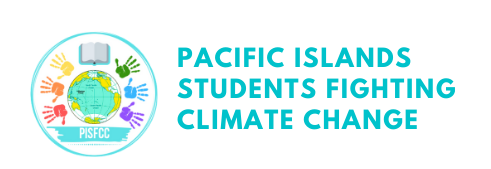Bridging the divide between human rights and climate change from the Pacific
As the climate crisis in the Pacific further escalates, Pacific Islanders are already seeing tragic effects on their daily lives. Reduced access to water and food means more and more people have had to live in extreme conditions and might have to leave their homes.
Predictions by theUN Special Rapporteur on extreme poverty and human rights say the world risks a 'climate apartheid' scenario where the wealthy pay to escape overheating, hunger and conflict while the rest of the globe is left to suffer. The climate crisis could force 120 million more people into poverty by 2030 and the brunt of the impact will be in poor countries, regions, and the places poor people live and work.
Solomon Yeo is a young climate change and human rights activist, working in the Pacific. He is the director of the youth-led organisation Pacific Islands Students Fighting Climate Change. Their vision? To "live with dignity and without fear of climate change denying us and our children of that freedom."
How did you get involved in climate change activism?
My passion to help my fellow Pacific brothers and sisters derives partly from the shared experiences and hardships we face together growing up in the Pacific.
Climate change is a cross-cutting issue to almost all of the problems we have in the Pacific and, undoubtedly, it poses an existential threat to our Islands.
Although we have contributed almost nothing to this problem, we have to live with such injustice each day.
How have your legal studies motivated your work?
During law school, it was inspiring to see how law can be a vehicle to accelerate change. Together with 26 other Pacific Island law students, we researched legal solutions towards addressing this climate crisis and then we started our journey.
What kind of work are you doing in the Pacific to combat climate change?
My main role is to direct our operations in the Solomon Islands, Vanuatu and Fiji. Together with our members we campaign nationally, regionally and internationally.
We work to influence policies and create awareness, focusing on conservation, climate change, disaster risk management, and youth and women's empowerment.
How has the COVID-19 crisis affected climate change activism? Are you hopeful for a better approach from governments on climate as we enter the 'new normal'?
A lot has changed due to COVID-19, and climate campaigning can be quite challenging. But we are persevering and compromising, for example, by pivoting to the virtual space. Together with other youth activists, we have been heavily engaged in regional and international online activism.
The message is clear from Pacific youth activists: in spite of the COVID-19 crisis, climate activism must continue. The digital space has opened up unfamiliar yet innovative avenues for climate activism. One example is the 350 Pacific Climate Warriors and their virtual 'Pacific Pawa Up Fellowship,' where youth participants strengthen their skills, and learn more about Pacific activism and identity.
The COVID-19 pandemic is a reality check for the people and governments on the importance of our ocean, environment, healthcare system, food sectors, land, welfare, indigenous people, and education. When we return to 'normal,' I believe many governments will understand their real priorities.
Most importantly, COVID-19 teaches us that it is possible to sacrifice a year and act with great urgency to bring transformational changes in our societies that realign development towards a sustainable future. I wish that to be the new normal that everyone can work towards.
You recently went to the UN Climate Change Conference in Madrid, Spain (2-13 December 2019). How was that experience?
A day after I graduated, I joined the Solomon Islands delegation travelling to Madrid, Spain to take part in the Conference. I was assigned to shadow our lead negotiators on Loss and Damage.
Ultimately, the final agreement on Loss and Damage was weaker than anticipated. It was disappointing to sit at the negotiation table to see that the worst polluting countries are continuing their stalling tactics and have watered down the negotiations.
It was clear: climate negotiations should not be the only method that we depend on for progress.
On the other hand, it was very empowering to see a united front from Pacific, Caribbean, Latin American, Asian, African and some EU countries, coming together as one to advocate for progress. It was admirable to see that negotiators, although frustrated, did not break in such circumstances because they know that their people, and their children, are depending on them.
How do you incorporate human rights into your fight against climate change?
The failure of governments to adequately address the climate crisis means that our human rights are threatened. The main aim of our campaign is therefore to bring climate change and human rights to the International Court of Justice. What we want is to bridge the divide between international climate change law, and international human rights law, which currently exist in parallel. We believe that the International Court of Justice can deliver this and help catalyse other much-needed actions to bring transformational change.
What would be your best advice to children and the next generation in the Pacific?
Never doubt how powerful and influential you can be towards bringing change. Be brave, be conscious and honour your Pacific heritage by continuing the Pacific fighting spirit against the biggest problem of our generation.
